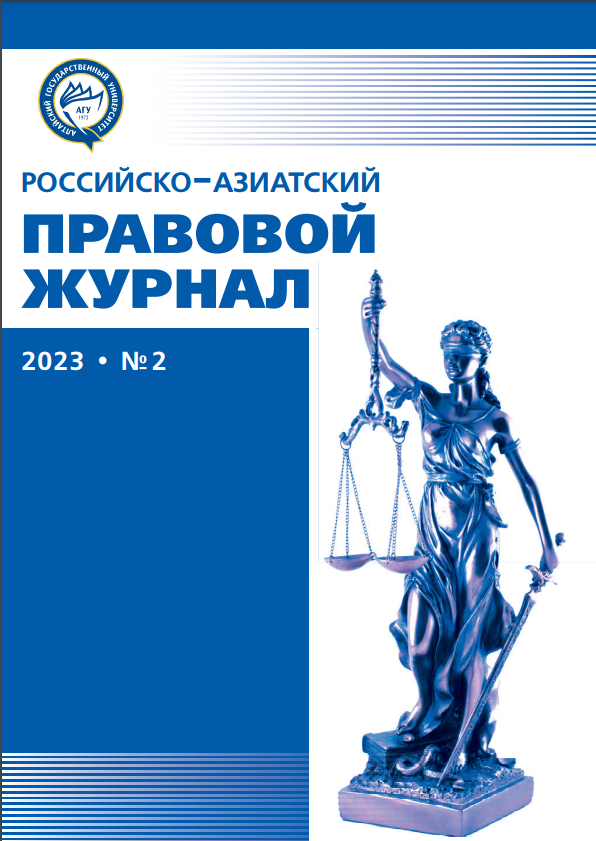ON UNDERSTANDING CONTINGENCY IN THE QUALIFICATION OF VIOLENT CRIMES
ББК 67.408.1 УДК 343.4
Abstract
The article analyzes the practice of interpreting the term «contingency», which is used by the legislatorin the constructions of articles 105, 131 and 132 of the Criminal Code of the Russian Federation. It is notedthat there is no legal definition of this concept, and law enforcement has not developed common approaches.Possible variants of understanding this term in the compositions of rape and violent acts of a sexual natureare being explored. It is proved that for the purposes of qualifying these crimes, it is impossible to use theapproaches that have developed in the practice of qualifying murders, both because of their inconsistencyand because of the significant differences between these crimes. It is noted that at present there are no initialgrounds for determining the nature of the connection between rape or sexual assault and other grave orespecially grave crimes against a person, which would determine the contingency of these crimes. A numberof qualifying issues have been identified that require resolution in order to form a uniform law enforcementpractice: the impact of the time gap between crimes and the procedure for their commission on qualificationon the basis of their conjugation, the possibility of qualifying as crimes conjugated to each other, providedfor by Art. 131 and 132 of the Criminal Code of the Russian Federation.
Downloads
References
Приговор Калужского областного суда от 6 августа 2019 г. по делу N 2–10/2019 // СПС Гарант.
Определение СК по уголовным делам Верховного Суда РФ от 28 марта 2002 г. N 85-ДПР02–12 «Причинение вреда здоровью после совершения изнасилования или насильственных действий сексуального характера квалифицируется как реальная совокупность преступлений, предусмотренных ст. ст. 131, 132 УК РФ, и соответствующего преступления против личности» (извлечение) // СПС Гарант.
Горюнов В.В. Квалифицирующий признак «сопряженности» в преступлениях против половой неприкосновенности // Уголовное право. 2023. N 2. С. 3–9.
Тыдыкова Н.В. О проблемах квалификации совокупности половых преступлений // Российский юридический журнал. 2022. №6 (147). С. 34–43.
Салева Н.Н. Убийство, сопряженное с иными преступлениями: проблемы квалификации и уголовной ответственности : автореф. дис. … канд. юрид. наук. Омск, 2006. 22 с.
Лопашенко Н.А. Убийства. М., 2013. 544 с.
Russian-Asian Law Journal is a golden publisher, as we allow self-archiving, but most importantly we are fully transparent about your rights.
Authors may present and discuss their findings ahead of publication: at scientific conferences, on preprint servers, in public databases, and in blogs, wikis, tweets, and other informal communication channels.
Russian-Asian Law Journal allows authors to deposit manuscripts (currently under review or those for intended submission) in non-commercial, pre-print servers such as ArXiv.
Authors who publish with this journal agree to the following terms:
- Authors retain copyright and grant the journal right of first publication with the work simultaneously licensed under a Creative Commons Attribution License that allows others to share the work with an acknowledgement of the work's authorship and initial publication in this journal.
- Authors are able to enter into separate, additional contractual arrangements for the non-exclusive distribution of the journal's published version of the work (e.g., post it to an institutional repository or publish it in a book), with an acknowledgement of its initial publication in this journal.
- Authors are permitted and encouraged to post their work online (e.g., in institutional repositories or on their website) prior to and during the submission process, as it can lead to productive exchanges, as well as earlier and greater citation of published work (See The Effect of Open Access).








